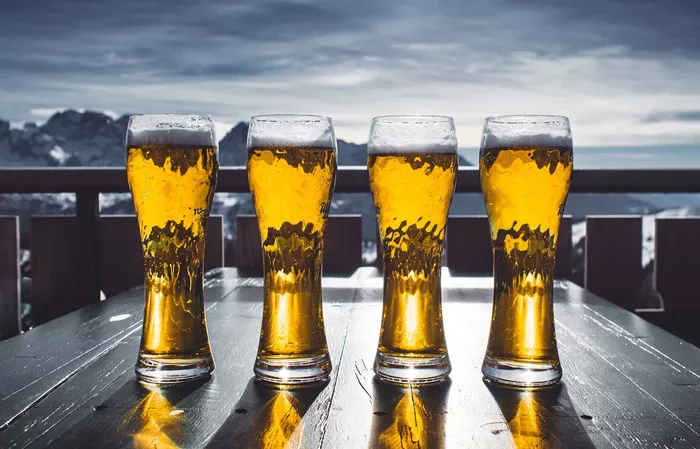Alcohol-free beer has gained popularity in recent years. Many people enjoy its taste without the effects of alcohol. For those with diabetes, the question arises: Is it safe to consume alcohol-free beer? Understanding the implications of alcohol-free beer for diabetics is crucial. This article explores the ingredients, potential health benefits, and concerns regarding alcohol-free beer for people with diabetes.
What Is Alcohol-Free Beer?
Alcohol-free beer, often called non-alcoholic beer or NA beer, is a beverage that resembles traditional beer. It typically contains less than 0.5% alcohol by volume (ABV). This level is significantly lower than regular beers, which can range from 4% to 8% ABV or higher.
How Is It Made?
Brewing alcohol-free beer involves several steps:
Brewing: The process starts like regular beer. Malted grains, hops, yeast, and water are mixed.
Fermentation: Yeast ferments the sugars in the mixture, producing alcohol and carbon dioxide.
Alcohol Removal: Various methods are used to remove alcohol. Common techniques include:
Heating: Heating the beer to evaporate the alcohol.
Vacuum Distillation: Lowering the pressure to allow alcohol to evaporate at lower temperatures.
Reverse Osmosis: Filtering the beer to separate alcohol and some flavors.
Types of Alcohol-Free Beer
Alcohol-free beer comes in various styles, including lagers, ales, and stouts. Some brands focus on producing specific styles, while others offer a range. It’s essential to read labels to understand the specific product.
The Effects of Alcohol-Free Beer on Blood Sugar Levels
Glycemic Index
The glycemic index (GI) measures how foods affect blood sugar levels. Foods with a high GI can cause rapid spikes in blood sugar. Alcohol-free beer generally has a moderate GI. This means it can affect blood sugar, but the impact is less than that of sugary drinks.
Blood Sugar Management
For diabetics, managing blood sugar is crucial. Alcohol-free beer can be part of a balanced diet, but moderation is key. Consuming it alongside a meal may help minimize blood sugar spikes. Pairing it with high-fiber foods can also slow carbohydrate absorption.
Individual Responses
Everyone’s body reacts differently to food and beverages. Some diabetics may find that alcohol-free beer does not significantly impact their blood sugar. Others may experience fluctuations. It is essential to monitor blood sugar levels after consuming alcohol-free beer to understand personal responses.
See Also: Is Gluten-Free Beer Made with Yeast?
Health Benefits of Alcohol-Free Beer for Diabetics
Hydration
Staying hydrated is essential for everyone, especially diabetics. Alcohol-free beer has a high water content. This can help with hydration without the effects of alcohol.
Social Enjoyment
Many diabetics miss out on social situations where alcohol is present. Alcohol-free beer allows for participation without compromising health. It can enhance social experiences without the risks associated with alcohol consumption.
Potential Heart Health Benefits
Some studies suggest that moderate beer consumption may have heart health benefits. Alcohol-free beer contains polyphenols, which are antioxidants. These compounds may help improve heart health by reducing inflammation. However, more research is needed in this area.
Potential Drawbacks of Alcohol-Free Beer for Diabetics
Carbohydrate Content
As mentioned earlier, alcohol-free beer contains carbohydrates. For diabetics, excessive carbohydrate intake can lead to elevated blood sugar levels. It is essential to read labels and choose brands with lower carbohydrate content when possible.
Alcohol Content
While labeled as “alcohol-free,” some beers still contain trace amounts of alcohol. For those who must avoid alcohol completely, even small amounts can be a concern. It is essential to check the label and choose products that meet individual health needs.
Calories and Weight Management
Although lower in calories than traditional beer, alcohol-free beer can still contribute to calorie intake. For diabetics managing weight, it’s essential to consider the overall diet. Drinking alcohol-free beer in moderation can help prevent unnecessary weight gain.
How to Incorporate Alcohol-Free Beer into a Diabetic Diet
Moderation is Key
The key to including alcohol-free beer in a diabetic diet is moderation. Limit consumption to one or two servings on occasions. This approach helps prevent spikes in blood sugar levels.
Pair with Healthy Foods
Pairing alcohol-free beer with healthy foods can make a difference. Choose high-fiber snacks or meals rich in protein and healthy fats. This combination can help stabilize blood sugar levels and enhance overall nutrition.
Monitor Blood Sugar Levels
After trying alcohol-free beer, check blood sugar levels to see how your body responds. This practice helps identify any patterns or concerns. Adjust your consumption based on individual responses.
Choose Low-Carb Options
Look for brands that offer low-carb alcohol-free beer. Many breweries are now producing options with reduced carbohydrate content. Reading labels and researching brands can help make informed choices.
Conclusion
In conclusion, alcohol-free beer can be suitable for diabetics if consumed in moderation. It provides a refreshing alternative to traditional beer without the same alcohol content. While it does contain carbohydrates and calories, it can be part of a balanced diet. Monitoring blood sugar levels and choosing the right brands are essential for managing diabetes effectively.
As with any food or beverage, it’s important to listen to your body and consult with healthcare professionals when needed. Enjoying social occasions with alcohol-free beer can enhance your quality of life while maintaining health.
You Might Be Interested In:


